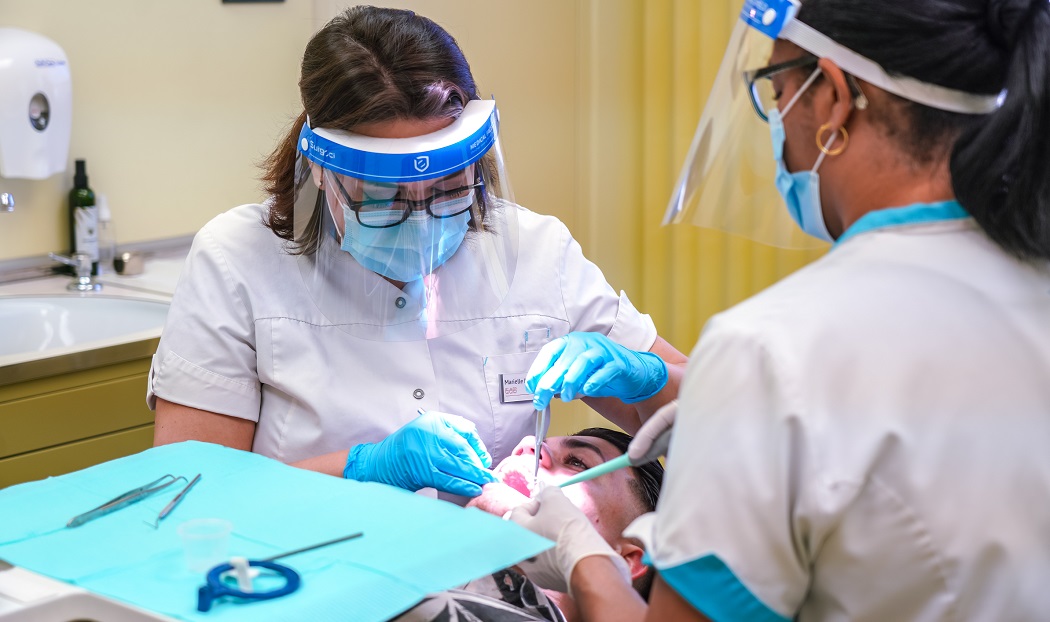Understanding Medicare Advantage dental coverage
Seniors looking for all-inclusive healthcare coverage are increasingly opting for Medicare Advantage plans. Dental coverage is one important feature of these programs that frequently demands careful consideration. Knowing the specifics of Medicare Advantage dental coverage is crucial for making well-informed decisions about healthcare, as oral health is critical to overall well-being.
Medicare Advantage Basics
Medicare Advantage, sometimes referred to as Medicare Part C, is a comprehensive alternative to original Medicare. Medicare-approved private insurance providers offer these plans, which include Part A and Part B as well as extra benefits like dental and vision care. Medicare Advantage plans, in contrast to Original Medicare, frequently include an integrated strategy, combining multiple services into a single plan.
Medicare Advantage Vs. Original Medicare Dental Coverage
Routine dental treatment is not covered by Original Medicare (Parts A and B). Original Medicare only includes dental procedures required to treat a particular medical problem, such as jaw reconstruction following an injury or disorders impacting the jaw. It does not cover routine dental cleanings, examinations, or other preventative care.
On the other hand, dental coverage is often provided as part of the extensive benefits package of Medicare Advantage plans. For seniors who value their dental health and seek a more comprehensive approach to treatment, this can be a big benefit.
Dental Service Types Covered by Medicare Advantage
Plans differ when it comes to Medicare Advantage dental coverage, but many of them cover a variety of necessary dental services. These services could consist of:
1. Preventive Services: Medicare Advantage dental plans usually cover routine examinations, cleanings, and check-ups. Preventive care is essential for keeping teeth healthy and identifying possible problems early.
2. Basic Dental Operations: X-rays, fillings, and extractions are examples of basic dental operations that Medicare Advantage plans may cover. These treatments take care of common dental issues and improve oral health in general.
3. Major Dental Operations: Dentures, crowns, bridges, and root canals are among the primary dental operations that are covered by certain Medicare Advantage plans. Seniors who might require more significant dental work may find this coverage to be beneficial.
4. Orthodontics Services: Although less common, Medicare Advantage plans may cover orthodontic services, such as braces or other corrective measures. Seniors who have particular needs for dental alignment may find this to be extremely helpful.
Limitations and Exclusions
Despite the comprehensive dental coverage provided by Medicare Advantage, it is important to be aware of any potential restrictions and exclusions such as:
1. Waiting Periods: There may be waiting periods before specific dental services are covered by insurance. When scheduling dental procedures, it is crucial to comprehend these waiting periods.
2. Network Restrictions: Medicare Advantage plans usually have dental networks, and paying for care outside of these networks may increase the amount of out-of-pocket expenses. Check the network of the plan to make sure your preferred dentists are covered.
3. Annual Maximums: Dental benefit annual maximums may apply to some plans. Seniors ought to be aware of these restrictions and think about how they match with any future dental needs.
Financial Considerations under Medicare Advantage Plans
Medicare Advantage plans are no different from other healthcare options as cost is a crucial consideration. Standard premiums apply to Medicare Part A and Part B while Medicare Advantage plans may have additional charges, such as copayments, premiums, and deductibles. Seniors assessing Medicare Advantage dental coverage ought to take into account the following:
1. Premiums: While some Medicare Advantage plans do not charge an additional premium for dental coverage, others might. Knowing these expenses is essential to creating a budget.
2. Deductibles and Copayments: Dental care is usually subject to copayments and deductibles under Medicare Advantage plans. In order to determine their out-of-pocket expenses, seniors should analyze these prices.
3. Cost-Sharing: Certain dental services may demand cost-sharing in particular plans. This could be a set amount or a portion of the overall expense.
Medicare Advantage with Dental Coverage Enrollment Process
There is a special procedure to enroll in a Medicare Advantage plan with dental coverage. The Initial Enrollment Period (IEP) lasts for three months, starting the month before the applicant turns 65 and ending three months after the birth month. Individuals have this window of opportunity to sign up for Medicare Advantage insurance.
Seniors should consult with insurance agents who specialize in Medicare plans or use the official Medicare website to research and compare Medicare Advantage plans with dental coverage. Individuals should think about their budget, preferred dentists, and unique healthcare needs while selecting a plan.
One of the most important steps toward guaranteeing complete healthcare in retirement is understanding Medicare Advantage dental coverage. With a variety of services covered, including major, basic, and preventative dental operations, seniors can prioritize the importance of maintaining good oral health as a component of their general health. To make choices that balance individual healthcare needs and financial concerns, it is crucial to thoroughly evaluate plan specifics, including limitations, charges, and network constraints. Seniors can benefit from a more comprehensive approach to healthcare in their old age by taking the time to understand the intricacies of Medicare Advantage dental coverage.
Thank you for reading the best mens lifestyle blog. ?








